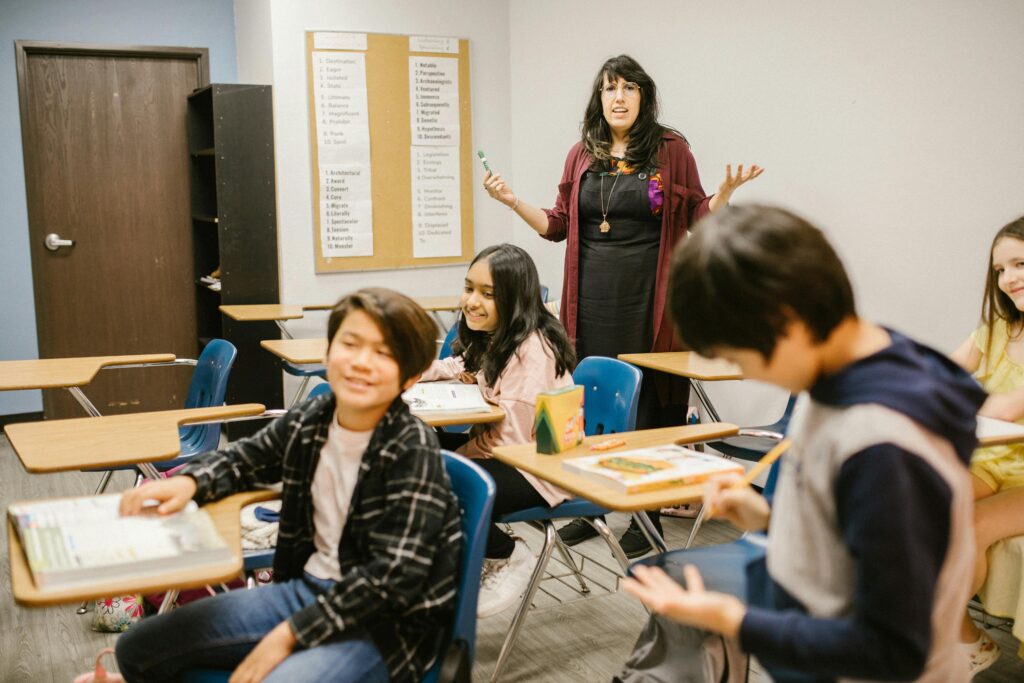The performance of tutors especially in terms of determination and perseverance depends a lot on soft skills.
These include communication, understanding the needs of the students, and being able to change different practices to suit the setters.
While content knowledge is relevant, interpersonal skills for a tutor typically define how efficiently information will be imparted.
These soft skills for a tutor help the tutor to know each child individually, be patient enough, and build confidence in a child to pass through academic difficulties.
Motivation and trust are likewise essential for any tutor, as basic interpersonal qualities are important for such a process.
Emotional intelligence in a tutor allows him or her to notice students’ distressed state, social or academic, and help them grow as students and individuals.
Secondly, good working relations make engagements with parents, guardians, or colleagues easier in this area.
This content will discuss the must-have soft skills for a tutor, the benefits of enhancing such skills in the tutor’s career, and the student’s enhancements.

Understanding Soft Skills For A Tutor
Soft skills relate to self aspects that determine interpersonal behavior, and the way people handle different situations. For tutors, these competencies are not only subject content knowledge but rather how they approach their task, becoming understanding of different learners.
In contrast to hard skills which implicate education knowledge and relevant expertise, soft skills for a tutor rely on personal skills which enhance relationships and confidence.
In the case of education, soft skills for a tutor are requirements for providing a harmonious learning environment. As a result of learning processes, tutors find it challenging to teach the students since they have different learning styles, confidence, and difficulties.
Appropriate soft skills assist tutors in this aspect because different people require different treatment so all should feel appreciated. For instance, while teaching, a tutor with good listening skills is most appropriate to pinpoint a student’s particular difficulties and perhaps provide an answer that suits that particular student.
Besides, these skills are very necessary for the development of good rapport with parents, guardians, and teachers as well as for improving cooperation and support on behalf of the student.
Appreciation of soft skills can make tutors teach effectively, build confidence among learners, and establish useful relationships with the learners.
READ MORE
Top 9 Soft Skills And Experiences That Can Surprise People
5 Best Soft Employability Skills Of A Family Lawyer

Key Soft Skills for Tutors
The following are the key soft skills for a tutor that help in the enriching environment set up towards the building of the students’ progressive confidence.
1. Communication Skills
One of the most important communication skills that any tutor should possess is good communication skills. Effective communication makes it easier for tutors to explain different issues to the understanding of the students.
It also helps set expectations for both the tutor and the student and works to maintain consistency in those expectations for the duration of the learning process. Good communication is not only in speech but also in listening.
A tutor must be able to listen and capture the kind and quality of questions the students are asking, or their doubts/feedback, so as to realize there are either misinterpretations or something unknown.
Tutors also should be able to convey the student’s information to the parents or guardians and make some recommendations on the child’s performance.
2. Empathy and Emotional Intelligence
An ability to understand another learner and his or her feelings is a crucial soft skill for a tutor. It is impossible to overestimate the significance of emotional intelligence in a tutor’s work. It’s possible to help students only if the tutors know their emotional state, and this gives them an opportunity to intervene appropriately.
For instance, students may be problematic in their academics as well as emotionally, either because of personal problems or even school/academic stress. Any signs of a forthcoming emotional outburst should enable a tutor to gain the one-on-one student’s trust and feel safe around him or her.
Emotional intelligence also helps tutors to bear with the students especially when the learners become fuming or discouraged. Positive reinforcement means a tutor can contribute to students’ success by pointing out the fact that there is always a way to overcome a specific moment that presents the problem and explaining how they can keep going with learning.
3. Adaptability and Flexibility
Every learner is unique; the temper of learning isn’t uniform and thus flexibility is a vital non-technical competency for the tutor. This means that tutors must be in a position to change their approach to teaching to correspond with the learning ability and the preferred speed of the learner.
Some students may follow teachings that involve icons and images while others would prefer handling objects or listening more to oral explanations. It is always about your personal convenience because a good tutor should be capable of adapting to the class to provide all students with what they need to succeed.
For instance, tutors can meet a variety of situations that require flexibility in one or the other way. Thus, tutors must be able to fit into these different situations.
4. Time Management and Organization
Organization skills and being able to effectively use time as an employee an important soft skills for a tutor. When using their services, tutors are assigned learners who require assistance in specific academic subjects they teach, thus time must be well utilized.
Effective time allocation enables tutors to spend adequate time within each topic and give more attention to weak areas than strong areas while at the same time making sure all material has been taken through.
Tutors should have a record that may cover lesson activities, assignments, and the development of students. One of them is well-organized work, which allows tutors themselves and, therefore, students, too, keep work on courses and themselves more organized.
A well-organized tutor can also avoid repetition because he or she is able to keep track of the previous lessons and therefore incorporate some elements of them in the next lessons.
5. Problem-Solving Skills
Some of the soft skills important to a tutor include; problem-solving, this is important especially when students seem to struggle in handling particular concepts.
Tutors also have to know how best to tell where exactly the misunderstanding is and how to go about correcting it. This can be anything from explaining a term as part of a larger concept discussing a topic in greater detail, or presenting it through analogies to making it simpler by explaining a concept and relating it to the real world.
Academic as well as other issues can also require problem-solving, in order to effectively address. For instance, there may be a problem with time management, or a lack of motivation at certain times. In such cases, the tutor has to assist the learner in finding ways of doing away with such barriers to learning.
6. Motivation and Encouragement
It is important for a tutor to be able to keep the students motivated and make them solve assignments despite the hardship involved. The motivation of learners is also not the same and tutors have to find out on which aspects each learner is motivated.
A tutor needs to determine the ways to motivate students, for instance, by encouraging them, speaking about their goals, or offering incentives for their progress.
Praise is also an important factor in the construction of a confident self within a student. Most students suffer from indecision most of the time, and more so when it comes to academic questions.
A teacher who supports students’ efforts, progress, or accomplishments builds student confidence and maintains focus on their educational objectives. Evaluative comments focus on success and thereby enhance a growth perspective which in turn improves performance among the students by the intervention of tutors.

Benefits of Strong Soft Skills for Tutors and Students
Good soft skills are not only advantageous for the tutor since they also have positive effects on the student’s performance in the learning process.
Every time the tutors exhibit good communication skills, the learners are in a position to grasp what has been taught to them and do not hesitate when they encounter any matter that they do not understand.
An intelligent tutor is able to quickly distinguish that the learner is bored, angry, or stressed and switch their strategy to encouraging. This emotional structure brings trust and is crucial to the formation of a favorable tutor-student working relationship.
In addition to that, soft skills for a tutor assist in creating student motivation and responsibility for achieving their learning goals. Reward mechanisms involved in motivation help tutors encourage the students to go through all the challenging times and at the same time embrace their accomplishments.
Students who receive encouragement will be stimulated to learn more, perform better, and even bolster a positive demeanor toward learning.
In the long run, the good soft skills are also advantageous to tutors by improving their job further satisfaction and advancement. Teaching skills are important but social interaction skills are key success factors in the tutoring business.
Conclusion
Therefore, soft skills for a tutor are of crucial importance for a successful tutor and sound academic performance of the learner. But within those things, the people skills are what enable tutors to relate with the students and meet their needs in order to create a healthy environment for learning.
Oral and written communication, being able to listen, flexibility, organization, individual problem solving, and the ability to inspire are qualities that make great tutors.
It is for this reason that mastering the competencies takes time, tutors can always improve the effectiveness of their teaching by engaging in reflection, practice, and feedback.
All the soft skills are in the student’s best interest; however, these are also effective for the tutor, enhancing his or her personal and functional development.
As tutors promote trust and encourage the learners, as they apply various strategies in handling students, they likely help the dream educational experience that may even last a lifetime. Finally, developing such skills generates a more efficient and satisfying tutoring situation for all the parties concerned.






